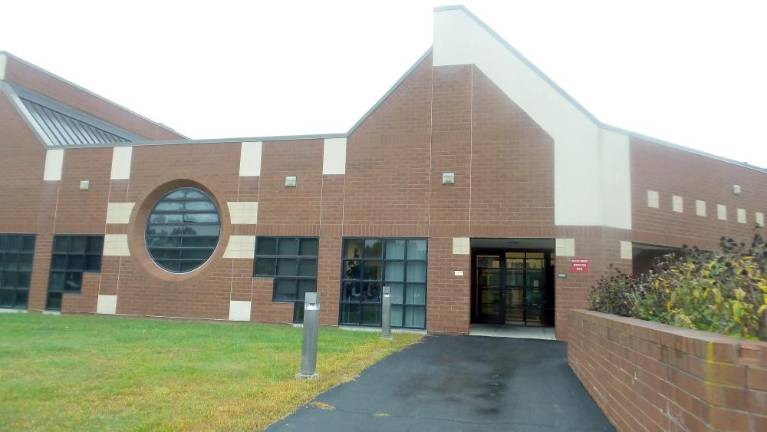Pike jail now charges inmates a housing fee
Milford. The relative of an inmate says the county’s new pay-to-stay policy is punitive and turns the Pike County Correctional Facility into a debtors’ prison. Officials say the fees are needed to recoup operating costs for taxpayers.


Pike County now charges its prisoners a $10-a-day housing fee, part of a new policy that went into effect on Sept. 18.
The relative of an inmate told the Courier the fee has effectively turned the Pike County Correctional Facility into a debtors’ prison.
“At every turn, there’s a fee,” said the relative, who asked that her name be withheld because she feared retaliation against the inmate. “When and how is rehabilitation addressed?”
Prisoners were notified about the new fee eight days before the policy went into effect. County officials say Pike’s new Inmate/Detainee Financial Responsibility Program will recover for taxpayers some of the cost of operating the jail by holding inmates financially responsible for a portion of their housing costs.
The fee is taken from an inmate’s commissary account. If an inmate has insufficient funds in their account, 60 percent of the balance will be deducted from the current balance, and 60 percent from all subsequent account deposits “until all fees are paid in full or the inmate is released.”
This means if a friend or relative deposits $100 in an inmate’s account for additional food and other provisions, only $40 will reach the inmate. The jail keeps the other $60 to pay outstanding fees and housing costs, which includes meals, laundry, programs, and other services provided by the jail. The policy does not say what happens to indigent inmates, except that any debt incurred will follow them.
Inmates can work. If they do, their accounts are credited $1 for each day worked -- $2 for kitchen workers -- and they are also forgiven their $10 daily housing fee. Inmates with disabilities are unable to wash floors and windows or clean trash cans, the relative said, and questioned whether there were enough jobs for every inmate.
“Inmates rely on family and friends to put money into their commissary account so they can purchase additional food, drinks, toiletries, to supplement the meager food and supplies” provided by the jail, the relative said.
She said now is a terrible time to institute such a fee, with families struggling to pay bills amid the pandemic.
“Many have lost their jobs or have reduced hours and limited income,” she said. “How are inmates supposed to pay the housing bill? What happens when they are released? They will be saddled with additional debt, with no income to pay it. How will PCCF collect?”
Prisoners are not allowed visitors because of the coronavirus, elevating the importance of video chats, which must also be paid for from commissary accounts.
Billing and fee collection procedures for undocumented immigrants detained by federal marshals or U.S. Immigration and Customs Enforcement agents also follow the 60/40 plan.
Other fees
Prisoners face a host of other fees. Upon sentencing, court order fees are collected from the inmate monthly and forwarded to the probation office. Upon the inmate’s release, their balance due is forwarded to the probation office for collection. Any costs accrued during incarceration are added on top of these already-calculated costs.
Inmates also incur fees for medical services: nurse’s visit, $3; physician’s visit, $5; dentist’s visit, $5; medications, $3. Participation in the group sexual offender class costs $15.
Inmates are charged a document fee and notary fees. A haircut costs $16, a beard trim $8. There are indigent services fees.
The relative told the Courier the jail was so cold, the inmate shivered through his first night. The next day, the relative deposited money into the inmate’s account for thermal shirts. Another inmate, who had been released about six years earlier, told the Courier the main thing he remembered was how perpetually cold the jail was.
Pike County Commissioner’s Chair Matt Osterberg told the Courier he planned to invite all media to schedule a visitation at the jail. The facility is going to receive an award, which will be announced in the next few weeks.
Osterberg’s communications director, Krista Gromalski, wrote in an email that the policy language regarding housing costs was updated at the Aug. 26 Pike County Prison Board meeting.
“All members of the prison board voted unanimously to adopt the new fiscal responsibility program,” she wrote in an email. Board members include the three county commissioners, Judge Gregory H. Chelak, District Attorney Ray Tonkin, prison board solicitor Thomas Farley, and Sheriff Kerry Walsh, who serves as board president.
Paul Wright, director of the Human Rights Defense Center and editor of the Prison Legal News, said the new policy is part of a trend.
“For the past 30 years jurisdictions around the country have sought to shift the massive costs of policing onto the backs of the policed,” he said in an email. “Charging a ‘cost of incarceration’ is one attempt at doing so. However, I am not aware of any jurisdictions where they bring in anything close to the amount of covering the cost of prisons and jails, instead they serve to further impoverish and immiserate the poor. “These laws also have significant due process problems to the extent they seek to take money from people too poor to afford bail, who are imprisoned before they have been convicted of a crime. Lawsuits in different parts of the country have successfully challenged these laws to the extent they are used against people accused, but not convicted, of a crime.”
Editor’s note: If you have done time in the Pike County Correctional Facility and would like to share your story, please email editor.pcc@strausnews.com or call the editor at 845-469-9000.